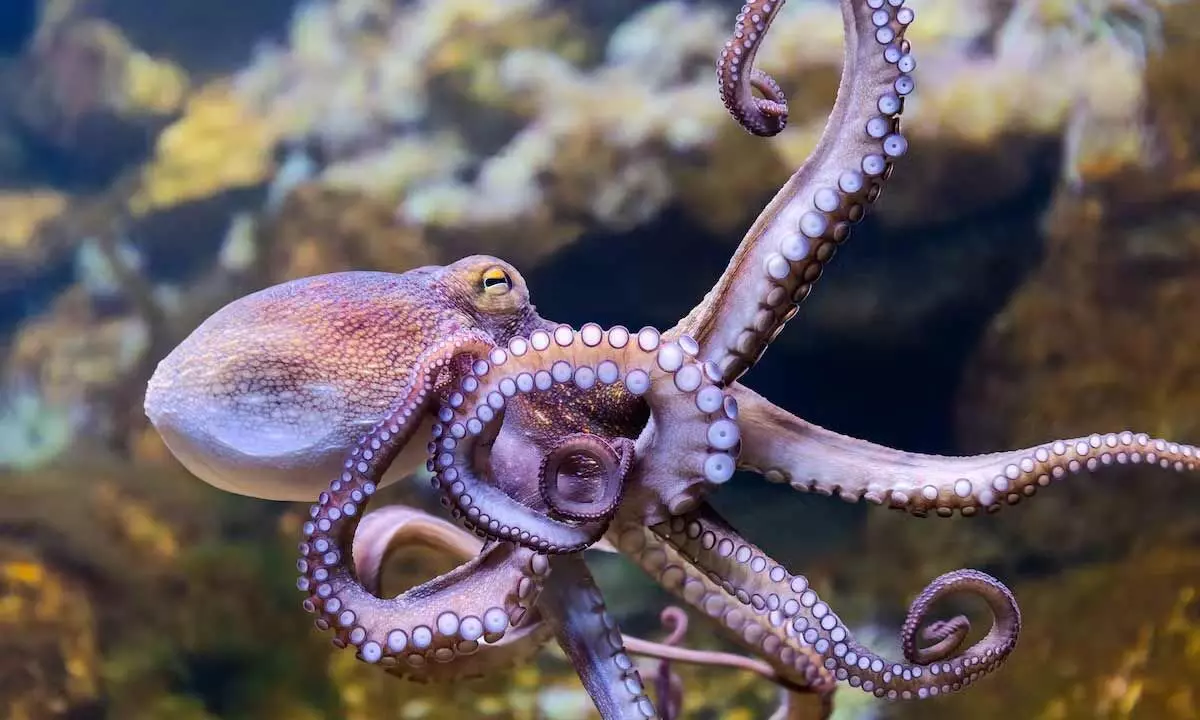Scientists Captured Brain waves Of Octopus To Know How It Works

Scientists Captured Brain waves Of Octopus To Know How It Works
- Scientists have captured brain activity from living, moving octopuses as they went about their daily lives.
- The recordings' exact meaning is yet unknown, but the research shows a first step towards comprehending the peculiar and intricate minds of these fascinating sea creatures.
Scientists have captured brain activity from living, moving octopuses as they went about their daily lives. By inserting electrodes into the animals' brains and data loggers beneath their skin that could record 12 hours of brain activity, this amazing feat was made possible. The recordings' exact meaning is yet unknown, but the research shows a first step towards comprehending the peculiar and intricate minds of these fascinating sea creatures.
Octopus researcher Tamar Gutnick said that octopuses are the ideal animal to study in compared to mammals if researchers wish to understand how the brain functions. They possess a sizable brain, an incredibly distinctive physique, and highly developed cognitive capacities that have evolved entirely differently from those of vertebrates.
Octopuses are incredibly inquisitive and curious creatures. They are also extremely mobile and possess unparalleled manipulation and reach abilities compared to other animals because to their eight bony arms. As a result, attempting to attach anything to an octopus that can fully utilise its body is pointless. And an octopus must use all of its body in order to demonstrate how its brain functions normally. An elecctrode cap or other non-invasive device that adheres to the outside of the body would not function.
Electrodes and data loggers created to monitor the brain activity of birds in flight were used as the answer. The researchers created a streamlined casing of plastic tubing since most of these gadgets are shielded by a waterproof hard plastic shell that has a rather wide profile and cannot be implanted in octopuses. Three octopuses of the species Octopus cyanea, often known as the giant blue octopus, were chosen for the study because they are enormous and have a hollow in their mantle, or middle, that can house a data logger.
Each anaesthetized octopus had electrodes implanted directly into the vertical and median superior frontal lobes. These electrodes were linked to the data loggers concealed under the mantle of each octopus. The batteries in each data logger allowed for continuous recording for 12 hours.
The animals were put back in their tanks, where the researchers watched as they woke up and went about their daily business. A video camera was placed to record their actions in the interim so that the scientists could contrast the brain activity with the behaviour of each octopus.
The scientists killed the octopuses after the recordings were finished and then retrieved the data loggers. They discovered a number of persistent patterns of brain activity, some of which resembled mammalian patterns. Nonetheless, certain patterns defy description in the scientific literature.
It's unclear what they're saying but none of the behaviours shown in the movies could be connected to the patterns. That, however, is not inherently unexpected. The octopuses were not forced to do any learning or memory activities throughout the experiment, despite the fact that the brain regions to which the electrodes were connected are linked to these functions.











